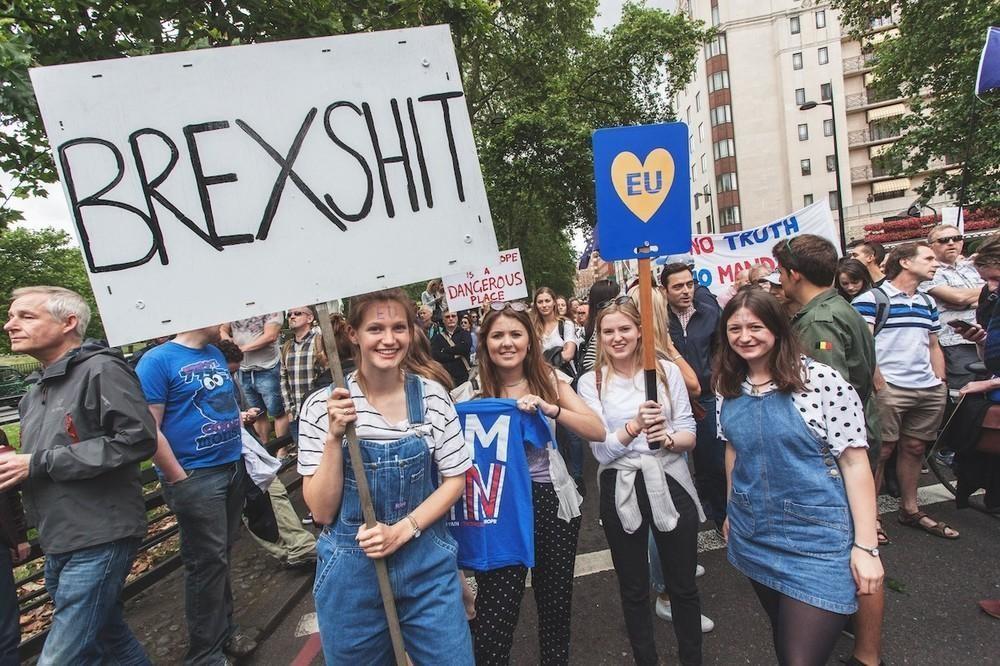For three months I’ve been writing a column about the indeterminate nature of Brexit. It has come to mean, among other things, a constitutional crisis, the potential disintegration of the United Kingdom as a unitary state, an excuse for the government to toy with ruthless tax cutting and labour deregulation, a return of Britain’s repressed imperialist history, legal and emotional turmoil for migrants, a retrenchment of Britain’s role as America’s “junior partner”, an unconvincing and troubling turn toward “the people” and its “will” in British political discourse, an imperative for cosying up with the world’s most sadistic ruling classes for trade deals, a strategic dilemma speeding up the Labour Party’s decline, and another morbid symptom in a crisis-prone European Union.
As if to confirm that Brexit’s multiplicity of meaning was getting too much even for the political class, the House of Commons has approved a General Election. This is a chance for “the people” – which is to say a small quotient of beleaguered voters who bother to turn up on the 8th of June – to nuance last year’s monosyllabic No and decide between a Tory hard Brexit, a Labour soft Brexit and the Lib Dems’ no Brexit. Whether we like it or not, this is likely to be the frame through which the election is seen: a de facto second referendum of what is often called the most important political event since the Second World War.
Videos by VICE
As many have observed – and as we discussed last week on The British Dream, our politics podcast – Brexit and its discontents provided three reasons for the Prime Minister to call this election. The first was that by calling it now it allows her to delay the next election to 2022. This is in her interests because if voters were to evaluate Brexit in 2020, as the fixed-term Parliaments Act implied they would, it wouldn’t look good: Article 50 would have expired and – assuming negotiations hadn’t collapsed – Britain would like be out of the EU in a transitional agreement. However, as per the European Commission’s guidelines, this transitional agreement would require “existing Union regulatory, budgetary, supervisory and enforcement instruments and structures to apply”. In 2020, Britain will still be paying money to the EU and abiding by its regulations; Brexit would have not yet meant Brexit on May’s terms, which is supposed to be a clean rupture with the obligations of the past.
Secondly, if the Tories’ lead in the polls is translated into parliamentary seats, a new election would give the government a stronger working majority than it has now, which is only 17 MPs, and, in the words of analysts at Deutsche Bank, allow May to “dilute the influence of [Conservative] MPs pushing for hard Brexit”. It would also strengthen her hand in the negotiations by quieting the possibility of Parliament rejecting the final Brexit settlement.
Thirdly, it allows May to break from David Cameron’s manifesto, which included tax freezes on national insurance and generous pension settlements, and write one for a post-Brexit world. This new manifesto would likely allow more wriggle-room to deal with a Brexit-induced recession, should there be one, and let May articulate her own version of Conservatism, the so-called “protective state”: a government that intervenes to protect its people (provided they aren’t migrants or rootless cosmopolitans).
Who knows if this wager will pay off: if recent events haven’t endowed the commentariat with humility when it comes to electoral predictions, nothing will. At the very least, we shouldn’t expect the election to make Brexit any more meaningful. Elections are surface phenomena; the real problems run deep. The depoliticisation of political life over the past 30 years has frayed the link between the masses and their representatives. The EU referendum, and this unwanted, morale-sapping general election, are symptoms of a more general crisis of legitimacy – nothing represents a panicked elite like a flurry of elections; and nothing alienates the electorate like the sense their participation in politics is merely ornamental. If there’s one evergreen prediction, it’s that things will only get worse.
And on the 8th of June, when everything has changed and everything remains the same, we’ll carry on Waiting For Brexit, for that final act when it all starts to make sense…
More
From VICE
-

Image Credit: KohlerHealth.com -

(Photo by Kayla Oaddams/Getty Images) -

(Photo by Rick Diamond/Getty Images for PUMA) -

Mightiest Mark Dragapult
